|
|
|
The city has a distinct aroma, as all ancient places do. The pungent air is laced with dirt and grime, stories and sin, life and death and spice. Amidst the hustle and bustle of a thoroughly post modern city, the thrum of antiquity lurks on every corner like so many Easter eggs waiting to be uncovered.
Our journey began at the Titular Church of Saint Prisca on the Aventine. Though there is some trouble sorting out, to which Prisca/Priscilla this church is named for, it is clear that this is a place of early Christian worship and Mithraic holy site. It should be noted here that the name Prisca is the proper name, Priscilla is the diminutive, much like Kimberly and Kim. See what I did there :) The church is adorned with magnificent art work some posted above, such as the painting over the altar depicting the baptism of Prisca by Peter. Other reliefs tell the story of martyrdom or the defiance of as she is seen awaiting execution in prison. The baptismal font is said to have been used by Peter himself, though this seems unlikely since the apostle most likely would have practiced immersion like most Church of God folk. Speculation about which Prisca ranges from the biblical Prisca, mentioned 6 times in the New Testament, including 4 times prior to the naming of her husband Aquila. This is the couple who fled Rome under the exile of Jews issued by Emperor Claudius in 48-49 CE. According to the New Testament, the two flee to Corinth and it is there they encounter Paul and the Gospel of Christ. Thereafter they become co-laborers in the proclamation of the Gospel with Paul and a part of his inner most circle. They travel to Ephesus to help plant the church in the region prior to Paul's arrival and later he sends them ahead of himself to Rome. Other traditions hold that the St. Prisca the church is named for was the young daughter of the biblical couple who was martyred under Claudius, making her the earliest official martyr of record. Still other traditions claim this Prisca was a woman of means perhaps a relative or named for the the biblical Prisca and her prominence in the early church. While the Mithraeum underneath is mostly intact and offers still visible inscriptions, it has been hard to find archaeological evidences of an earlier house church. However, owed to tradition, it was on this spot, Callistus inscription near the altar explains the site was dedicated first to Hercules then to Christ as a place where Peter baptized many in Jesus' name. The stories hold more weight since the Aventine was the busy home to Roman tradesmen, merchants, laborers and those visiting the city looking for work, it was the blue collar hill in town. This then seems likely place for Prisca and Aquila to have gathered together with believers, awaiting Paul's visit riding out the terror of Nero and worshiping with Peter before his own death.
0 Comments
We are in the middle of the fiercest hurricane season of memory the United States. Hurricane Harvey devastated Houston and surrounding cities just last week and now Irma is reeking havoc in the Caribbean while all of Florida has been advised to evacuate before the near category 5 storm makes landfall. The winds and rains and waves are said to be the size of Texas, and we keep watch as the 24 hour news cycle reports sights of horrific devastation and loss of life.
Our hearts leap as we see children lifted to safety in baskets swinging from helicopters, heroes floating down streams where parks used to be to rescue a single mom and her baby from a rooftop. As it is in every one of these so called natural disasters there is loss of life, loss of property, economic ruin and most often those hardest hit are the elderly, the poor and the infirm. We pray, we check in on our friends on facebook, we to send money to the trusted organizations on the ground providing aid and-- inside, secretly, down deep we ask, we question, we wonder-- How could a God who loves us cause or allow, (depending upon your theology) such a horrific scenario to befall humanity. For those who believe God caused this storm and every other thing, it is sometimes easy then to view the catastrophe as punishment. There is, of course, biblical precedent for that interpretation. There is the one prehistoric story where the flood wiped out humanity leaving only one faithful drunk and his family (Gen 8-9). Only now it seems that when folks apply this hermeneutic, they do so to find the punishment is a response to the actions or omissions of people groups they don’t particularly like and the sins that are the not transgressions of their own account. In the Genesis flood story the entire human family was held accountable for the sins of the people. Others are more comfortable with a notion of a God who stands idly by while the wreckage is allowed, a God who grants the adversary dominion to lay waste and destroy in some battle of supernatural forces. And there’s an a-historical narrative like this one too found in the Old Testament. The problem here is this interpretation is inherently Greek in influence and can leave us feeling like pawns in some cruel cosmic game and we have to wonder, is this the point of the story anyway, or is the story here the means of conveying a deeper truth? Still others will search for formulae within the Scripture, work to add and subtract the numbers found in apocalyptic literature to determine the end is for sure near. Some even now, convinced that the stars have aligned and the disasters foretell the fulfillment of Revelation 12.5 await the end of the world on the 23rd day of September this year. And some of us open wide our hands, loose our grip on what we thought we knew and admit our utter helplessness in the hour. We know it isn’t the end of the world, it’s just the end of life as we know it. Everything is different after the storm. We remember. We realize we’ve been here before. We know well what it is to have no control over the outcome, the diagnosis, the death, the tornadic debris of a broken relationship or dream. We will hunker down, brace ourselves for another assault but know instinctively the storms come and will do what they will. We refuse to believe that those who are struck with tragedy are any less beloved than those who will walk away unscathed. We look around wild eyed for the helpers and the survivors, those who’ve waded through the waters and did not drown. We let go of the questions of Why and instead allow the honesty of our doubt to bond us to others facing the torrent. We welcome those with nowhere to go, we take in those who have nowhere to turn, we feed the hungry, we hold the broken. We board our windows and shop for rations and kneel down in the safest place we can find—at the feet of the Father of Rain, the one who knows where the lightning bolts are kept. We lie down and sleep, not because we are safe but because we are loved and we are not alone. And though we are frightened and shaken and beyond preservation we have an unassailable peace that the one who told the sea where to begin and end is with us and for us whilst the storm rages on (Job 38). I am literally so excited to begin this semester and thrilled to be offering a new graduate course, The Early Church and the Empire. Above I have posted the required texts for BIST 5150 and BIBL 2000 and provided corresponding links to Amazon. Eager to meet you all soon and looking forward to a great Fall 2016-2017 at Anderson University.
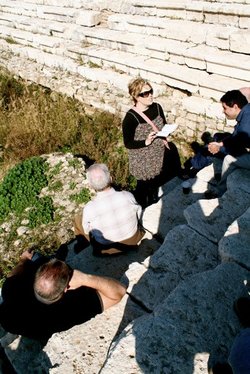 I have often spoken of the power in the mystical sands, the healing offered in that holy water. I have written verse on the touching of stones and the praying the prayers of the ancients as I have sojourned the storied land. Israel is for me a place of history, a place of sacrament, a piece to a sacred puzzle I have been assembling for more than forty long years. It is testimony and Ebeneezer and I return time and again to find center and a sense of home. So I set my sights and make my plans for pilgrimage once more but this time I return to follow the footsteps of Jesus and the women central to his ministry. Imagine with me for a moment an experience where you could set your course to grow closer to Jesus by walking in the places he walked and by learning the stories of the women with whom he traveled and served. Imagine the wonders of the newly excavated Migdol- ancient fishing town in the Galilee and home of Mary of Migdol or Magdalene. Worship at the Church of the Annunciation in Nazareth where we visit the home of Mary and see her there reversing the curse of Eve and redeeming womankind. Set your eyes towards Jerusalem to walk the Via Dolorosa and visit Calvary’s mount to the tomb where they laid him and the stone where his body was prepared lovingly by the women who had remained with him until the end. Lose yourself in the warmth and hospitality in the old city in the Dormition Abbey consecrated as the place where our Lady died and travel deep into the desert to learn the mysteries of Masada– the Winter Palace of Herod and the last stand of the Jewish Rebellion. Hear the stories of the women who escaped the doom to be carried off to Rome. Sound intriguing? Then come along with me and some of my friends on pilgrimage to Israel. We will worship and study, and feast this December 27, 2016-January 5, 2017! 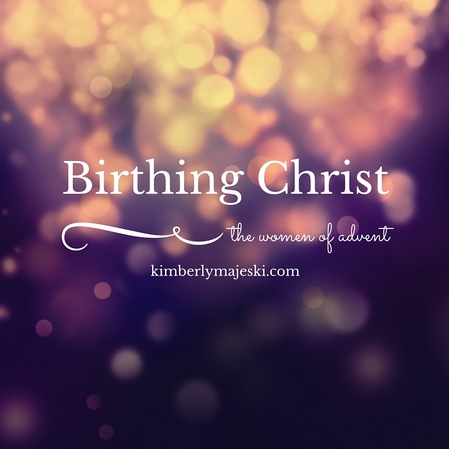 .In those days folks were suspect of strangers, didn’t trust others from foreign lands. Fear had seized the hearts of the cities such that the ancient practice of hospitality had been all but lost. She lived in the border town, was the woman who lived on the wall and saw it all go down—the bloodshed, the fighting, the wars so if anyone should have been afraid she certainly had cause. I’ve seen her city with my own eyes, looked down from the craggy, dusty mounts of the biblical Moab to see the lush green valley and fertile fields of Jericho. The city on the edge of the Promised Land must have looked like heaven on earth for those who had wandered in the harsh, barren wilderness for forty long years. Ages upon ages later as I watched the palm trees sway in the balmy air and saw the sun dance on the water, I understood why the ancients called this, “the land flowing with milk and honey.” The people in Rahab’s city had long heard of and feared Israel and her God so when those God people appeared on the horizon, the king of Jericho sent orders to keep watch for intruders and to report back any trouble to come their way (Joshua 2)." "That will fix it" the king thought, "Fear will force my people to find the others, the ones who are not like us." "And anyway, our city is safe" he reasoned, "We have a great, strong wall." How she found her way to the wall is unknown to us, but suffice to say it is where you end up when you have nowhere else to go; no family, no support, no backup plan. It was how a woman survived when she had no other course, she sold her body so she could eat and feed any children she might have, she put herself in harm’s way to survive another miserable day. The characters on the wall were not the elite of the community, no these were the wanderers,the alcoholics,the thieves, these were the ruffians, the ones who were lost and sought a moment of pleasure in their own miserable existence so depravity sewed depravity and the cycle was without end. Only Rahab’s story was different, because in her we see again how the זוֺנַה the harlot is God’s choice to be a conduit of grace and the one to birth redemption into her time and place. When Joshua sent the spies to scope out the city after forty years in the wilderness, Rahab anticipated their arrival. She’d heard the stories of the “God who led people through the sea” the One who fed the wanderers bread from heaven, and “stood guard over their camps like a pillar of fire!” So when the spies arrived, the men who were sent from this God she decided to take a chance and put her life in the hands of the One who “brought this people out, so he could bring them in (Deuteronomy 6.23).” The king, upon learning that spies had entered the city, rounded up his men to question the people on the wall. Grabbing her arm and holding her by the scruff of the neck the soldiers breathed venom into her face, “Have you seen these men?!” they demanded, “Tell us the truth whore! Your worthless life depends on it!” And just then her whole life flashed before her eyes; she knew she had a decision to make in the space of her breath. She could keep doing what she had always done, she could continue to eek out an existence on the wall entertaining men who thought more of the dust on their sandals than her happiness, she could continue to sell off parts of her self to survive one more hour, one more day until there was nothing left, or-- she thought with a flash--she could take a chance on the God of the storm and the sea. “I haven’t seen them!” she lied, as her heart beat loud and fierce, her mouth went dry and her ears burned hot. She knew the men were hidden under the rushes and if the guards decided to look too carefully she and the men of Israel she was protecting would die. Instead, the guards believed her story and left her so she quickly helped the men scurry out of the city and up the mountainside to safety but not before they promised to spare Rahab and her household. So when the armies of Israel returned to march around the city, she hung her scarlet thread outside her window, the same window where men had stared up at her and considered her price before, the same window where she probably considered throwing herself down from time and again. Instead, the deep crimson thread read like the blood over the doorpost to the armies of Israel so that Rahab and whatever people she had were spared and she was adopted into the family of God. This Advent season when there are wars and rumors of wars, when our world is violence filled, when fear of the other has robbed our joy and stolen the power of embrace may we pause to remember the time long ago when God came to us in the most unexpected way. Let us remember the time when the no good, down and out harlot became the heroine, when she chose to take a chance on this God and found a miracle in the strangers. Rahab's is the story of the prostitute whose risk lands her in the story of redemption history, establishes for her a place in the genealogy of the Christ (Matthew 1) and her inheritance is secured in the annals of faith (Hebrews 11). Her story calls out to remind us, God is the God of the harlot, the untouchable, the other. Her story beckons to us across the sea, and says "Be not afraid." Times were hard to say the least, help seemed far off and options few. Folks left home in the morning and never returned again due to some unforeseeable act of God. When this happened to her the first time the ancient custom kicked in and she was married to her husband’s brother. The plan was for the brother to take care of her, giver her children, grant her security in the cold brutal world. Only this man was no good, he paraded around, took the accolades, let everyone pat him on the back for doing the right thing-- the hard thing, but in secret he was using her for his pleasure and denying her any hope of a future.
Her name, Tamar, means little palm tree. She was a Canaanite girl likely married into the family of Israel-the one who struggles with God-at the tender age of twelve or thirteen; wed to Judah's son Ur and widowed shortly thereafter. Her second husband Onan, more wicked than his elder brother, took the praise of being Tamar’s goel, deliverer, redeemer, but deceived the entire community every night when he took her and spilled his seed on the ground ensuring that Tamar’s child wouldn’t usurp his inheritance (Gen.37). After Judah’s second son was struck dead Judah was through with the black widow Tamar and he sent her packing back to her father’s house where they said, “What are you doing back here, we don't need another mouth to feed?” “We told you not to get involved with those people!” She endured her life as a desolate woman and waited for the chance to marry Judah’s third son but word never came and soon she knew Judah never intended to send for Tamar. It was at this point Tamar had to choose between two evils, to remain in her father’s house as an image of shame and failure that in her culture would bring down the entire family or she could find a way to make it back into the family of God. And then here is where it gets sticky, and why it's hard to share this passage at women’s conferences, the reason we skip this whole beautiful and terrible narrative on our syllabi in Bible courses, because there is too much sex and semen and outright prostitution. But to skip over this piece of hope is to fail the consideration of the whole counsel of God and if we are going to take passages restricting the roles of women in leadership we must also consider the texts where God is on the side of the prostitute. Tamar's story is dirty, harsh, unsavory and the truth is we want clean, gracious good wives as heroines so we sanitize the Scriptures and create idols of what we wish were in the text, what is permissible to say in Sunday School and refuse to embrace the miracle of the text that is. What’s true is Tamar did the only thing she thought she could do, she dressed up like a prostitute and lured her father in law into sexual relations with her. When it became known that she was with child and they stormed her tent to drag her out into the street to burn her alive she was able to produce Judah’s staff and seal and prove he was the father of the child. Then-and only then-Judah did the first decent thing in his life, he testified to her righteousness and his sin and took her in as his own. And so this lovely, inglorious story has a remarkable and redeemed end in that God blesses Tamar’s risk, somehow understands the desperation of her life, takes account of the men who have used and abused her and grants her with not one, but two sons and a place in the story of Jesus. Tamar becomes then one of the five named women in the genealogy of Christ—women who were known to their communities as harlots and whores, forgotten, desperate and soiled (Matthew 1). In Matthew's Gospel Jesus is not only the son of Abraham but also son of Tamar, Rahab, Ruth, Uriah's wife and Mary the Virgin. Perhaps this Christmas it helps us to reflect on the women God used to birth forth Christ, to reckon with the truth of their less than perfect lives and to see what God sees in the broken, the left out, the displaced and forgotten, the shamed and the lowly. Maybe this Advent we can adjust our gaze and see what is true in this blood soaked weary world, God is with and for those whom the system has turned away, the ones whose safety net has failed. God who could have come to us by any means chose to do so through women abandoned and betrayed. So it was and may it ever be. 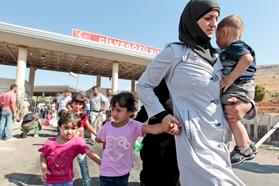 The fog of war, that’s what at least one politician called it, when smoke and the sound of bullets ricochet around the world. The dizzying noise and throbbing pain of fear, survival, we strain and struggle to find the courage to lift our heads again after the atrocities of the Russian flight, Paris, Beirut and Kenyan attacks. I lie in my bed, my own baby sleeping in the next room and give thanks for him and hold the babies on the border up to God. I pray for children displaced from their homes, running for their lives as their chubby fingers reach for their mothers who are being trafficked and shackled into sex slavery in epic proportion in exchange for the lies and false promises of smugglers. I cry for the little ones coughing in the cold night air hoping to be welcomed, to find safety and refuge. I am no government official or policy maker, I’m no military strategist or counter terror expert, I’m just a mama and a Jesus follower and a student of the horrors of ages old violence done in the name of God, and I can’t help but think about all those babies. I remember fondly time spent in Syria a few years ago. I remember the vivid colors, bright smiles and pungent smells. I remember warm, educated, sophisticated people, multi-generational families gathered for worship in the Church of our Lady in Sednaya. I remember standing in caves, struck silent by the thrum of the stories told by the cold rocky walls carved out of the earth where the earliest Christians had taken refuge, those who had fled persecution in Jerusalem and re-located in haste to Antioch. I dined with friends as the table of abundance was spread out before me, I held hands with new believers and prayed for their keeping and care in these uncertain days. I walked down Straight Street in Damascus to find the home of Ananias just as the apostle Paul had done before me, used the wifi at a tavern named after the one sent to the Gentiles by way of the Jews. Took tea at the Convent of St. Thecla and prayed in Koine Greek on top of a mountain with a priest keeping watch in the chapel of the Sepharim. I think of them, see their faces in my dreams, I think of those babies dressed in ruffles and lace bouncing on their parents’ proud knees. I am sorry for everyone in the world tonight who is afraid—for those who live in the city of lights and for those who wait for help in a makeshift tent in a camp between here and there, for people who live in Indiana and Tennessee who are frightened because the wars that have always been “over there” have now moved in “over here.” As the narrative unfolds before our eyes, around the clock media coverage takes over our lives and fear grabs us by the throat and dares us to open wide our hearts to people in need, I cannot help but think about the stories of Scripture and how God’s people have always been on the run. From Abraham and Sarah to Jacob and Joseph, to Moses and Miriam, Ruth and Naomi and David the shepherd before he was king. I think of the refugee child, Jesus, the baby who came to be our hope, whose parents were turned away when they sought safety from the cold and terrors of the wild to bring him into the world. The baby, whose parents, upon discovering a genocidal plot led by a tyrant king fled for their lives in the cover of night to take refuge in another land far from the reach of the murderous monarch. And suddenly, all those years ago don’t seem so far away and the stories we grew up on speak across the epochs of our histories and we are invited again to welcome the stranger and to know Christ in her while we cling to the angels’ sweet refrain, “Do not be afraid.” 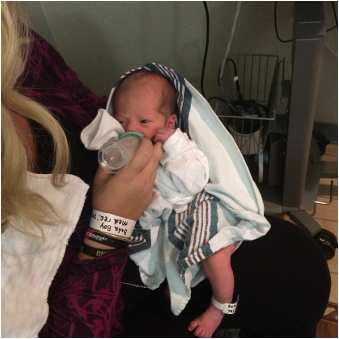 Something happens when you become a mama at forty one years. When your life’s work has been focused out there, and taking the right next steps; about proving yourself in an arena where we hang our achievements on the walls and add letters to the ends of our name. When your field is built on searching, digging deep, posting findings, projecting results; when you are trained to always look for the emerging voice, to be abreast on the newest way and the ancient equivalent, it can be difficult to lose sight of here and now. When all your energy is invested in preparing ministers you can forget to minister to yourself, to serve and honor those with whom you share a home, to be awake in the day to day four walls of where you live. When you travel across the world to discover the wonders of by gone civilizations to study ruins and find magic in the storied stones and timeless dust you can miss the miracles in your own zip code the mercies that break fresh and new with each morning’s first light. So when a little healer comes your way, wrapped in soft pink flesh, cradled in heaven’s scent, stars dancing in his eyes you stop-- and the rest of the planet goes silent --as you wait to learn what his tiny fingers and curled angel toes have to teach you in this world. That is exactly how it happened for me almost a year ago now when an unexpected phone call on a Sunday afternoon changed our lives forever. We’d had life changing calls before to be sure, so many times before when the voice on the other end broke news that shattered the world; when the ground we stood on erupted and gushed forth in fire and white hot pain leaving behind only ash and embers that were all but snuffed out by the dark cold reality that is death. 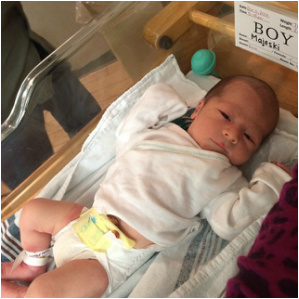 But this time, it was different. The voice on the other end heralding the news that in the space of a few seconds you have become a mother, and your husband a father, and your baby boy not twenty four hours old is waiting to greet you. You pack a bag in disbelief like so many times before only for this trip, your face hurts from smiling and instead of choosing a funeral dress, you consider curling your hair so your son meets you at your best that first shining moment. And then they wheel the gift in, these nurses who have kept watch, held and loved this little guy so he was loved right from the start, they laugh and they cry as you take him in your arms for the first time and there is nothing but joy and new and miracle and wonder. You blink back tears because somewhere down deep, though this dream has long since been placed on a shelf in the far recesses of your heart, you always knew he would come to you this way and here you now are. You hold him the night through because he sleeps sounder on your chest than in the hospital crib and already you fit together skin to skin, heart to heart and he is yours and you are his.And suddenly the words of your prayer rings again in your ears like a lullaby soft and true, “I will see the goodness of God in the land of the living.”  You remember the promise, reading it that night in the dark hospital room while the machines beeped and you watched her breathe in and out and knew the letting go had already begun, you turned the page of her well worn bible and read, “The Lord will again fill your mouth with joy and your lips with shouts of laughter” Job 8.21. And on this night, in the hospital reclining on the most uncomfortable bed, holding your baby boy you know the promise has come to pass; you know as you hold your son and he breathes in life and light and love that the Lord your God has restored what the locusts have eaten and `you will ever so slightly begin to heal And just like that, as if the stitches have been removed, the ones holding your shattered heart in one piece, reveal the fresh shiny rose colored skin of scars you now bear that sing the song of triumph and all things new. You know this child of wonder has come to invite you back into your one life, beautiful and terrifying as it is, it is yours, and this is now and you are loved and you are known and you are held.  My tanned skin is slowly fading. I chase the warm sun before it shifts from the bright light of summer to the even ‘time shades of gold and russet. The pool is closed most of the day now as kids return to school and the baby needs new shoes. Preparation for a new year is underway and I am keenly aware of the turning seasons. His tiny foot now broad muscles pressed down to hold him up as he makes his first steps in the warm solid earth of this world. I wonder as I sit in front of the laptop watch the courser blink, if I remember how to write or teach or study anything that isn’t him with his dimpled knuckles and perfect round mouth where cheerios now fit with ease. I know the world rages, terror is amok and new political candidates have burst onto the scene. I am aware of recent abuse and violation come to light from men who stood forward under the bright lights and kept secrets all their own. I haven’t missed the atrocities alleged of women’s clinics where we hoped women were served with care or the number of deaths that continue to rise when my dark skinned brothers and sisters are engaged by those meant to keep us safe. I weep, I cringe, I hold my baby close and count his eyelashes again. It is not that the world has changed, the jagged edges and soft beautiful wonders are perennial, it is me, I am different. I marvel how this tiny babe has caused my eyes to open, resuscitated my weary heart grown now like so much in the Grinch’s own tale. Here I am at the dawn of all things new, the world as troubled as it was before, my losses a drop of water in the sea compared to so many in my human family and I come to where I have already been—though--changed, renewed, hurts healed over, knees bent in gratitude and bowed to love. I say aloud and bear on my chest what I have always known but have now come to live-- love heals. These words not a bumper sticker but a victory chant, the broken alleluia of a scholar and storyteller and strip club pastor, new mama and struggling sister. It is the triumphant song of those who stumble in the footsteps of the One who at once reigns and is the slaughtered Lamb (Revelation 5). I know now that healing is not so much cast down from a grand stage, words sang out under the lights as much as it is the small, human moments when we touch, stand in the gap, hold the sacred space, say what is true and real. I know moving forward is wrought in the fiery irons of authentic friendship with people who sit in the ash heap alongside you and hold your hand at the bottom. I know that transformation is the result of a thousand tiny seconds when love beats through the darkness like a firefly in the summer sky, helps you read your way through and follow the stars. I know God calls to us like God called to Abram and Sarai, “Go, and when you get there, I’ll tell you” (Genesis 12). This is what I know. As the season fades and the new one dawns I wish you peace and grace, I wish you love and light and eyes to see the shining moments and shimmering skies, time to hold all you love close and the intention to do so. I wish you the blessing of knowing you are where you have been sent and the awareness that those around you are heaven's gifts poured out.  Please find a list of required books for Majeski courses fall 2015-2016. Anderson University classes begin, Monday, August, 31 and syllabi will be available on first day of class. See you soon!! BIST 6210 History and Literature of the New Testament I* Ehrman, Bart, The New Testament: A Historical Introduction to Early Christian Writings; 5th Ed. (Oxford: Oxford University Press,2011) Reasoner, Mark, Roman Imperial Texts: A Sourcebook (New York: Fortress, 2013) BIBL 2000 Introduction to the Bible Frigge, Marielle, Beginning Biblical Studies (Revised edition). Winona, MN : Anselm Academic, 2013. The Bible (I recommend NRSV but students are welcome to bring any translation preferred but must be able to access Bible for class, every class) CMIN 2000 Introduction to Christian Ministry Evans, Rachel Held, Searching for Sunday: Loving, Leaving, and Finding the Church (Nashville: Thomas Nelson, 2015) CMIN 3050 Corporate Ministries: Communicating the Gospel Lischer, Richard, The Company of Preachers: Wisdom on Preaching, Augustine to the Present (New York: Eerdmans, 2002) Taylor, Barbara Brown, The Preaching Life (Cambridge, MA: Cowley Publications, 1993) *Applies to residential and online sections of BIST6210 |
Subscribe Today for Free GiftBLOG
Archives
July 2019
Categories
All
|
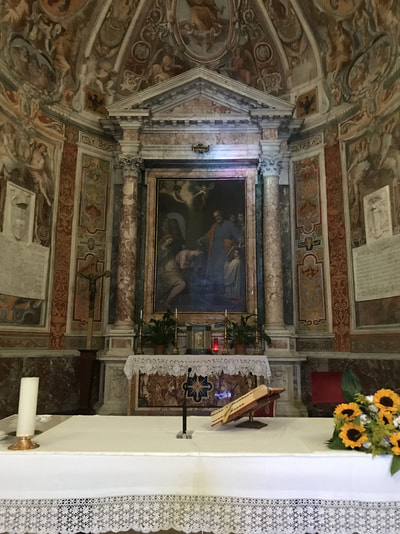
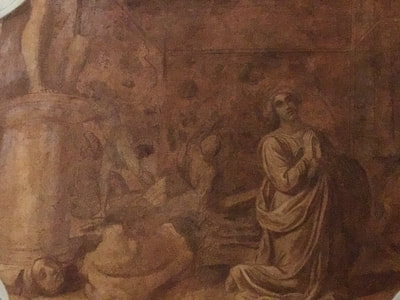
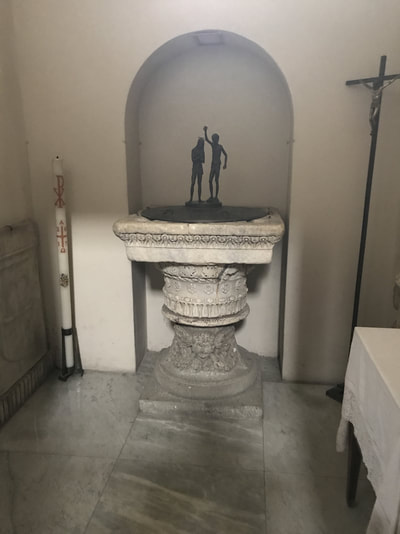
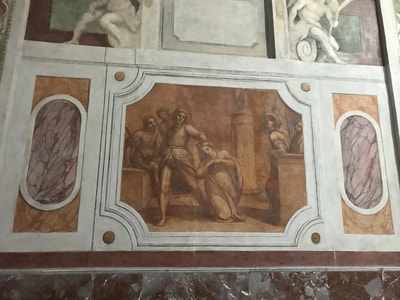
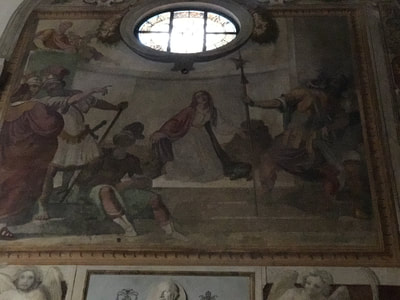
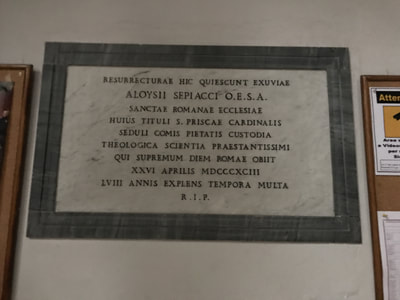
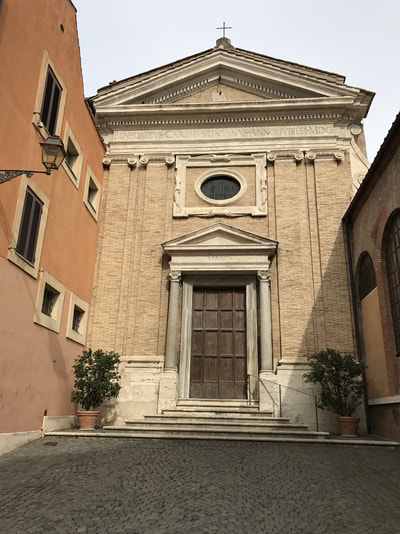
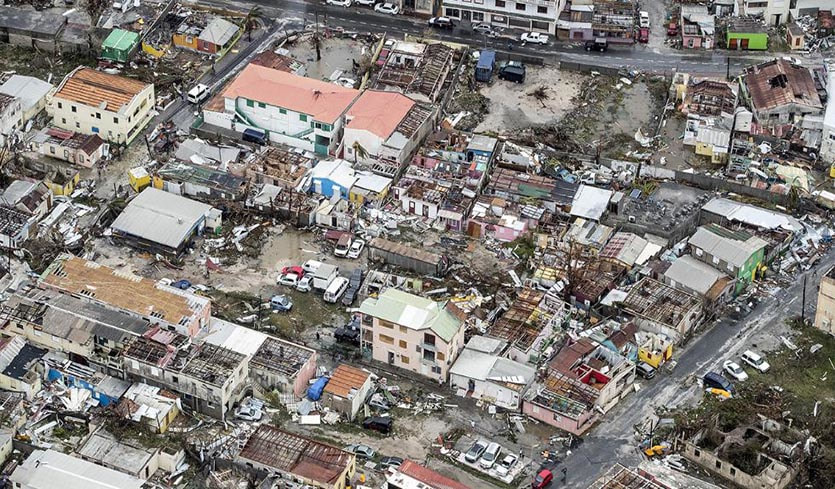
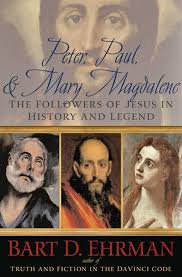
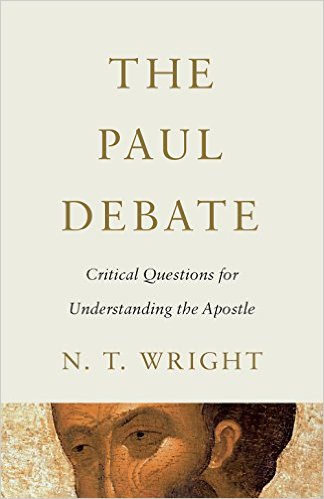
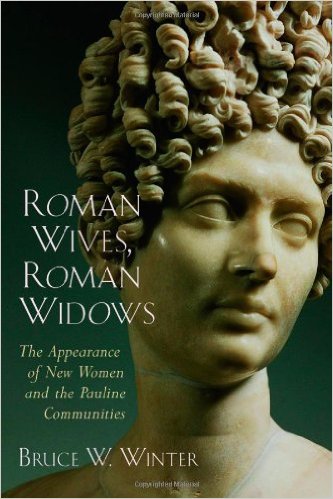
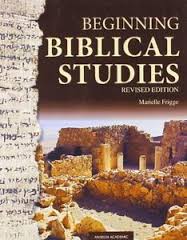

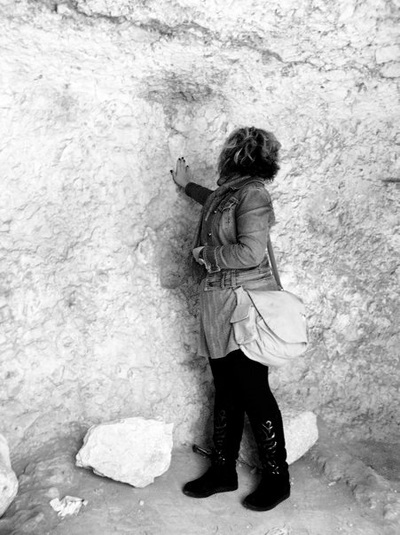
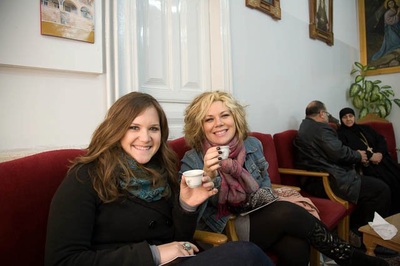
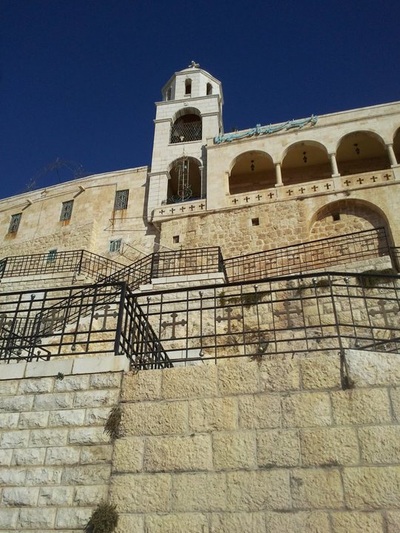

 RSS Feed
RSS Feed